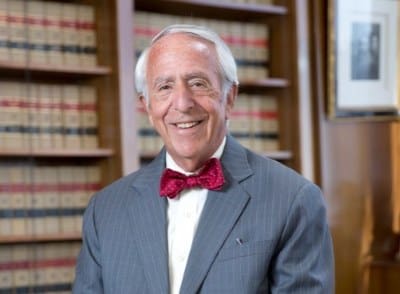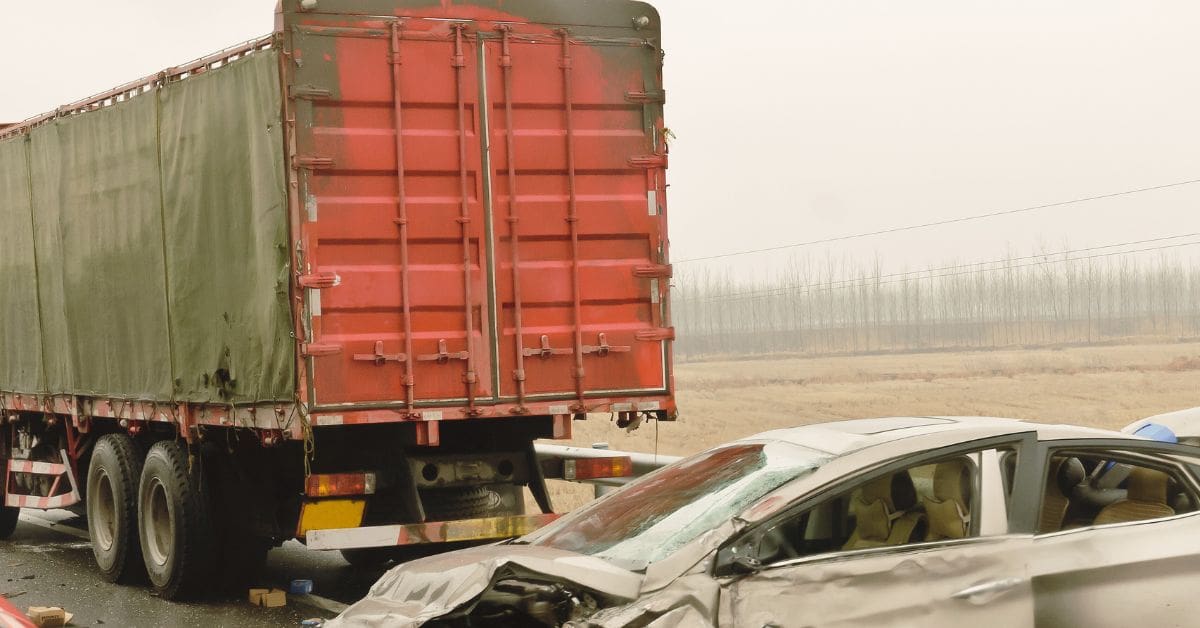Uber Sexual Assault Lawsuits

Ride-hailing giant Uber is facing a large number of lawsuits from customers who have been sexually assaulted while riding in an Uber. Uber is headquartered in San Francisco, California. As a result, Uber is facing hundreds of sexual assault lawsuits in California state and federal court. The lawsuits against Uber have made allegations ranging from kidnapping, sexual assaults, sexual battery, rape, false imprisonment, stalking, harassment, or otherwise attacked by an Uber driver. The Uber lawsuits also allege that Uber was aware as early as 2014 that Uber drivers were sexually assaulting and raping female passengers, but chose to prioritize growth over customer safety. It is also alleged that Uber intentionally concealed that current Uber drivers had previously sexually assaulted women in order to preserve the appearance that Ubers were safe. Furthermore, the lawsuits against Uber allege that Uber did not conduct proper background checks on its Uber drivers, which lead to even more sexual assaults occurring in Ubers. Marlene Goldenberg of Nigh Goldenberg Raso & Vaughn has been appointed by the Court to the leadership of the Uber sexual assault litigation.
Uber Sexual Assault Lawsuit Timeline
May 2024 – Uber Terms of Use Unenforceable
On May 20, 2024, the Court entered case management order #15 regarding Uber’s terms of use. The Court explained that the central issue was if the parties “have the right to agree that some federal lawsuits cannot be coordinated with other federal lawsuits, notwithstanding a finding by a panel of federal judges that the lawsuits share common issues of fact and that coordination would result in the just and efficient conduct of the litigation?” Uber had previously argued that those who were sexually assaulted in an Uber were “contractually barred from pursuing their claims in these centralized proceedings and before this Court.” Uber based its arguments on a “Non-Consolidation Clause” and a “Forum Selection Clause” in Uber’s terms of use. Ultimately, the Court held that Uber’s terms of use cannot be enforced in light of the Congressional mandate set forth in 28 U.S.C 1407, which created the Judicial Panel on Multidistrict Litigation.
March 2024 – General Uber Litigation Protocols
In the month of March, the Uber Court entered 6 PreTrial Orders that are mostly protocols for various aspects of the Uber sexual assault litigation going forward. On March 1, 2024, the Court entered Uber PreTrial Order #8, regarding discovery dispute resolution procedures. The Court then issued Uber PreTrial Order #9 on March 15, 2024, regarding electronically stored information (ESI) disputes. A few days later on March 19, 2024, the Court entered Uber PreTrial Order #9 implementing fact sheets for the Uber sexual assault lawsuits on file. For Uber sexual assault lawsuits filed after March 26, 2024, a Plaintiff Fact Sheet will have to be completed and submitted within 30 days of the sexual assault lawsuit being filed. The Uber Defendants must complete and submit a Defense Fact Sheet within 30 days of an Uber sexual assault plaintiff serving Uber their Uber ride receipt in which the sexual assault occurred.
On March 20, 2024, the Court entered Uber PreTrial Order #11 adopting a master complaint and short form complaint going forward for all Uber sexual assault lawsuits filed into MDL 3084. The Court noted that in light of the number of Uber sexual assault lawsuits filed and anticipated to be filed, it would be inefficient to draft individual Uber sexual assault complaints and answers to those complaints.
On March 26, 2024, the Court entered Uber PreTrial Order #12 establishing an Uber common benefit and protocol for keeping time and expenses.
February 2024 – Uber Lawsuits Continue Forward
The Court issued Uber PreTrial Order #7 on February 9, 2024, denying Uber’s motion to stay all Uber sexual assault proceedings in MDL 3084. Uber’s primary argument was that it would be wasting time and expense by defending sexual assault lawsuits in MDL 3084 when there was a potential that the ninth circuit would reverse the JPML’s decision to consolidate all Uber sexual assault lawsuits into MDL 3084. The Court ultimately held that Uber failed to demonstrate a “clear case of hardship or inequity” and that the Plaintiff’s who were sexually assaulted demonstrated a “fair possibility” of harm. MDL 3084 will continue progressing forward against Uber for sexual assaults associated with Uber rides.
January 2024 – Direct Filing Uber Lawsuits
Uber PreTrial Order #6 was entered by the Court on January 2, 2024, and allows for the direct filing of Uber sexual assault lawsuits directly into MDL 3084. The purpose of this Uber Order was to eliminate any potential delays associated with transferring Uber sexual assault lawsuits to the MDL from other federal district courts. Specifically, the Court ordered “any Plaintiff who alleges that Uber paired them with a driver who sexually assaulted them before, during, or after a trip, and the alleged incident occurred in the United States, may subject to the provisions set forth below, file his or her [Uber sexual assault] action against one or more Defendants hereto directly in this District”.
December 2023 – Discovery Schedule & Leadership Appointment
The Court entered Uber Pretrial Order #5 on December 28, 2023, which set out a discovery schedule. The Court noted that this Order would be binding on all parties and counsel in all Uber sexual assault lawsuits “pending in or subsequently added to In re: Uber Technologies, Inc., Passenger Sexual Assault Litigation, MDL No. 3084.” The Court also ordered that by February 15, 2024, Plaintiffs with lawsuits on file by February 1, 2024 alleging sexual assault in an Uber must produce an Uber receipt connected to the alleged sexual assault incident. If an Uber receipt is not available, Plaintiff’s Uber sexual assault lawyer must disclose:
- Why the Uber receipt is unavailable;
- Name, phone number, and email address of the accountholder who ordered the Uber;
- Date of the Uber ride with as much precision as reasonably possible;
- Starting and end location of the Uber ride; and
- Any other basic information that may assist in identifying the Uber ride.
For Uber sexual assault lawsuits filed after February 1, 2024, the Plaintiff’s Uber sexual assault lawyer will have 14 days from the day the Uber lawsuit is filed to produce the Uber receipt from the ride in which the sexual assault occurred.
On December 6, 2023, the Court entered Uber PreTrial Order #4, appointing the Plaintiffs’ leadership over the Uber sexual assault lawsuits in MDL 3084. Marlene Goldenberg of Nigh Goldenberg Raso & Vaughn was appointed to leadership of the Uber sexual assault lawsuits. In total 11 Uber sexual assault lawyers across the United States were appointed to MDL 3084 leadership. The Court noted it will hold its next Uber case management conference on January 12, 2024, and ordered the Uber Plaintiff and Defense attorneys to submit the following by December 14, 2023:
- Proposed pretrial order regarding Uber discovery
- Stipulation regarding anonymity for those who were sexually assaulted in an Uber and wish to remain anonymous
- Stipulated protective order
- Process for filing long-form Uber sexual assault complaints
The Court also encouraged the Uber Plaintiff attorneys to file their Uber sexual assault lawsuits sooner rather than later. It appears that the Uber Court anticipates a large number of Uber sexual assault lawsuits to be filed in the coming months and years.
November 2023 -Uber Appeals MDL 3084 Formation
On November 10, 2023, the Uber Defendants filed a petition for a writ on mandamus in the Court of Appeals for the Ninth Circuit. Uber’s lawyers argued that the JPML erred when it centralized all Uber sexual assault lawsuits into MDL 3084.
On November 6, 2023, the Court entered its third Uber PreTrial Order, which detailed how attorneys can apply to be on leadership for the Uber sexual assault lawsuits. The Court set a deadline of November 17, 2023, for lawyers to apply to lead the Uber sexual assault lawsuits in MDL 3084. Uber sexual assault attorney Marlene Goldenberg of Nigh Goldenberg Raso & Vaughn submitted her application to be on the Uber MDL 3084 leadership.
On November 3, 2023, the Court entered Uber PreTrial Order #2 regarding the preservation of evidence that may be relevant to the Uber sexual assault lawsuits. The Court laid out the duties of the Uber sexual assault lawyers to take reasonable steps to preserve all evidence that may be related to the Uber sexual assault lawsuits. The preservation of evidence applied to Uber corporate and personal accounts, including email systems, mobile device data, text messaging applications such as iMessage, WhatsApp, Facebook Messenger, SnapChat, WeChat, Signal, Wickr, and Telegram, and much more.
October 2023 – Creation of Uber Sexual Assault MDL 3084
On October 6, 2023, just two days after the creation of the Uber sexual assault MDL, the Court issued PreTrial Order (PTO) #1, which set the first status conference for MDL 3084 for November 3, 2023. The Court noted that MDL 3084’s master docket will be titled “In re: Uber Technologies, Inc., Passenger Sexual Assault Litigation”. The Court also invited the Uber lawyers to suggest a Special Settlement Master to aid in any potential Uber sexual assault settlement.
On October 4, 2023, the Judicial Panel on Multidistrict Litigation (JPML) issued an Uber Transfer Order, which consolidates all sexual assault lawsuits against Uber around the nation into MDL 3084 in the Northern District of California. The JPML noted that at the time the Uber Plaintiff attorneys moved for consolidation in July of 2023, there were 22 Uber sexual assault lawsuits on file in 11 federal district courts. In the two months since the Uber plaintiff lawyers’ motion to consolidate, an additional 57 Uber sexual assault lawsuits were filed in four federal district courts.
The JPML held that the Uber sexual assault “actions involve common questions of fact, and that centralization in the Northern District of California will serve the convenience of the parties and witnesses and promote the just and efficient conduct of this litigation. These actions share complex factual questions arising form allegations that Uber failed to implement appropriate safety precautions to protect passengers, and that plaintiffs suffered sexual assault or harassment as a result. Common factual questions include Uber’s knowledge about the prevalence of sexual assaults by Uber drivers, and whether Uber failed to conduct adequate background checks of its drivers, train drivers regarding sexual assault and harassment, implement adequate safety measures to protect passengers from sexual assault, and adequately respond to complaints about [Uber] drivers.” The JPML added consolidating all Uber sexual assault lawsuits will “eliminate duplicative discovery; prevent inconsistent pretrial rulings; and conserve the resources of the parties, their counsel, and the judiciary.”
The Uber defense attorneys had opposed consolidation of all of the Uber sexual assault lawsuits, arguing that “individual and state-specific factual and legal issues will predominate, and that discovery will focus on the various circumstances of plaintiff’s alleged assaults and their injuries.” However, the JPML soundly rejected the Uber defense lawyers’ arguments, noting, “almost all injury litigation involves questions of causation that are case- and plaintiff-specific. Such differences have not been an impediment to centralization in the past.” The JPML then reiterated, “We find there are sufficient common issues present to warrant a centralized treatment, including, for example, Uber’s knowledge of the prevalence of sexual assault, representations regarding safety, and policies and practices for handling complaints about drivers.”
In distinguishing from prior mass sexual assault lawsuits that were denied consolidation, the JPML noted, “Given the large and growing number of involved [Uber sexual assault] actions and counsel, centralization likely will streamline overlapping discovery and pretrial proceedings arising from nearly identical allegations regarding Uber’ corporate policies and practices as to alleged passenger sexual assaults.”

The Uber defense attorneys also argued that Uber’s Terms of Use precluded the JPML from being able to consolidate all Uber sexual assault lawsuits into an MDL. The JPML noted that they found the Uber defense lawyer’s argument to be “not persuasive” and that “the Panel is not bound by Uber’s Terms of Use, and Section 1407(c) grants the Panel the authority to centralize civil cases upon its own initiative. Moreover, plaintiffs suggest they will challenge the enforceability of Uber’s Terms of Use.”
The JPML found the Northern District of California the most appropriate venue to consolidate all of the Uber sexual assault lawsuits because there were already 62 Uber sexual assault lawsuits pending in the district. Furthermore, Uber is headquartered in the Northern District of California and there is already a California state court consolidation of Uber sexual assault lawsuits. The JPML selected the Honorable Charles R. Breyer, who already presided over seven Uber sexual assault lawsuits, to preside over the Uber MDL 3084.

Marlene Goldenberg Appointed To Uber Sexual Assault MDL 3084 Leadership
Amidst the escalating Uber lawsuit saga, we are proud to announce that Partner Marlene Goldenberg has been appointed to the Plaintiff’s Steering Comittee in Uber’s Multi-District Litigation (MDL). Known for her legal acumen, particularly in cases involving personal injury and product liability, Marlene’s expertise is now channeled towards championing justice in the high-profile Uber sexual assault litigation. Her appointment is a significant testament to her relentless pursuit of justice and her unwavering commitment to holding corporations accountable. Moreover, we’re also thrilled to share that Sam Hoefs, Associate Attorney at our firm, has been appointed to the Law and Briefing Committee for the Uber Passenger Sexual Assault Litigation. Sam’s involvement further strengthens our firm’s representation in this landmark case and underscores our dedication to providing top-tier legal advocacy.
As we address the alarming allegations against Uber, including reports of sexual assaults by drivers and the company’s failure to conduct thorough background checks, our legal team, led by figures like Marlene Goldenberg and Sam Hoefs, remains committed to ensuring the safety and justice for all affected individuals.
Are Ubers Safe?
Uber sure wants you to think that riding in an Uber is safe. Uber states on their website that 99.9% of trips in 2019 and 2020 ended without any safety incident, such as sexual assault. When shown as a statistic, Ubers appear pretty safe (keep in mind that there are approximately 3 million Uber rides every day). However, when viewed as individual incidents, the number of sexual assaults that occur in an Uber is startling. A review of Uber’s 2019-2020 US Safety Report indicates that Uber received 3,842 reports of the five most severe categories of sexual assault, which ranged from “non-consensual kissing of a non-sexual body part” to “non-consensual sexual penetration,” or rape. In Uber’s 2017-2018 US Safety Report, Uber noted that they had received 5,981 reports of sexual assault.
Uber noted that the recent drop of sexual assaults occurring in Ubers (5,981 sexual assaults v. 3,842 sexual assaults), ‘may have been impacted by a number of factors, including how the Covid-19 pandemic altered usage of the platform as well as Uber’s safety and transparency efforts.” In Uber’s most recent safety report, Uber noted that 80,000 drivers have been removed from the app as a result of continued background checks.
Uber Does Not Report Sexual Assault to Police
Officials in Santa Clara County, California have argued that Uber should be reporting sexual assaults to the police. However, Uber has cited to advocacy group guidelines in their decision to not report sexual assaults occurring in Ubers to the police. Uber argued that victims should be in control of when and how to disclose their experiences. The assistant district attorney for Santa Clara County stated that, “Uber receives a complaint, investigates the complaint, makes a finding and handles said findings internally and privately” and that “Uber has essentially carved out its own justice system.” The assistant district attorney estimated that Uber was aware of 60 sexual assault incidents in the county, yet only one Uber driver had been prosecuted.
California Public Utilities Commission’s $9 Million Settlement With Uber
After the release of Uber’s 2019-2020 US Safety Report revealed a large number of sexual assaults in Ubers, the California Public Utilities Commission (CPUC) requested data on such sexual assaults arising in Uber passenger vehicles. However, Uber failed to respond to CPUC’s request for data on the sexual assaults experienced in Ubers. As a result of Uber refusing to provide data on the sexual assaults that occurred in Ubers, CPUC fined Uber for $59 million. CPUC later settled with Uber for just $9 million for failure to respond to CPUC Rulings requesting information regarding sexual assaults and harassments. Furthermore, Uber agreed to “provide information on sexual assault and harassment to the CPUC on a going forward basis.”
Uber Sexual Assault Attorney
If you have been sexually assaulted while in an Uber, contact our Uber sexual assault attorneys today. Call 202-925-4500 or fill out our web form for a free consultation if you have been sexually assaulted or raped while in an Uber.









